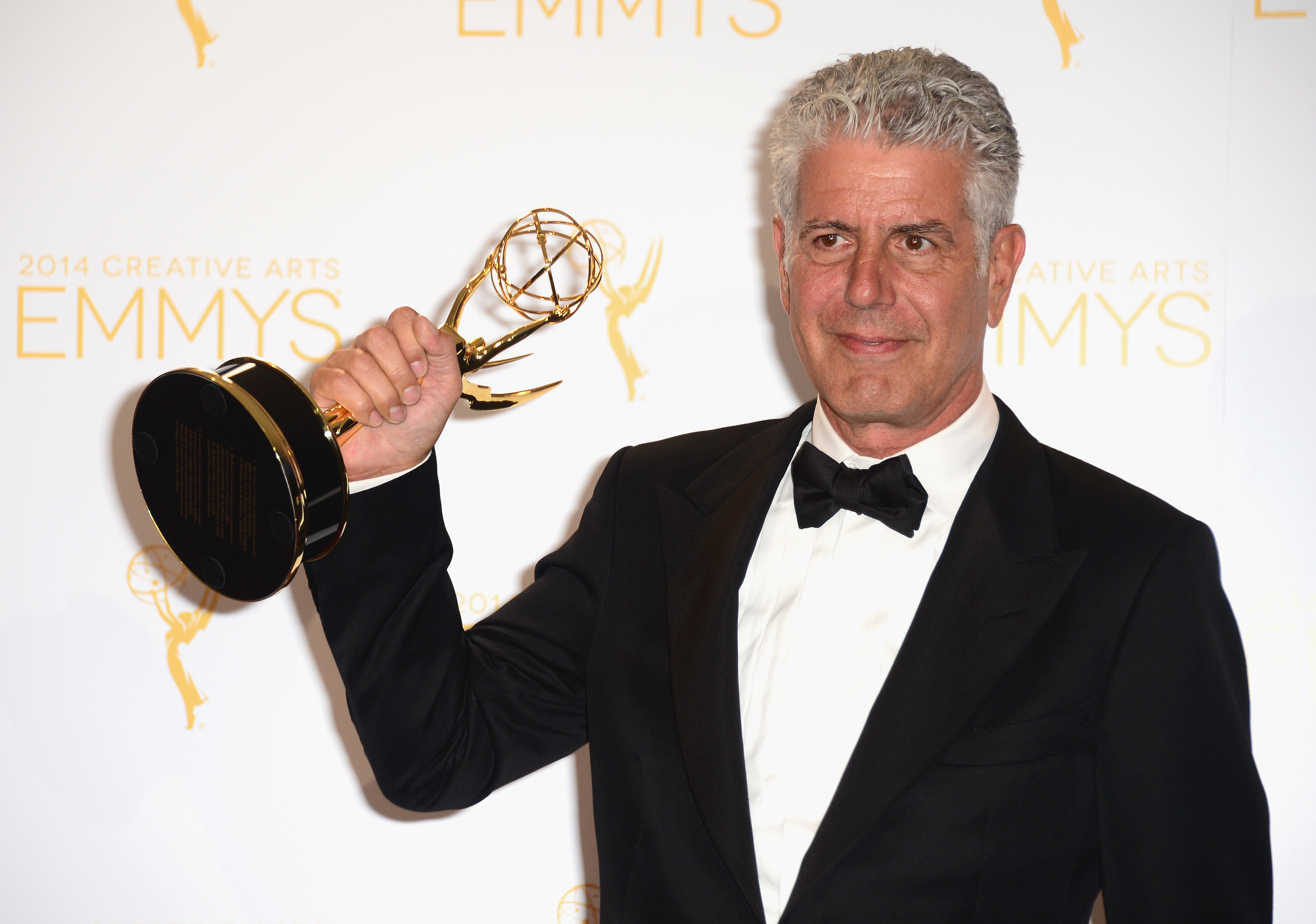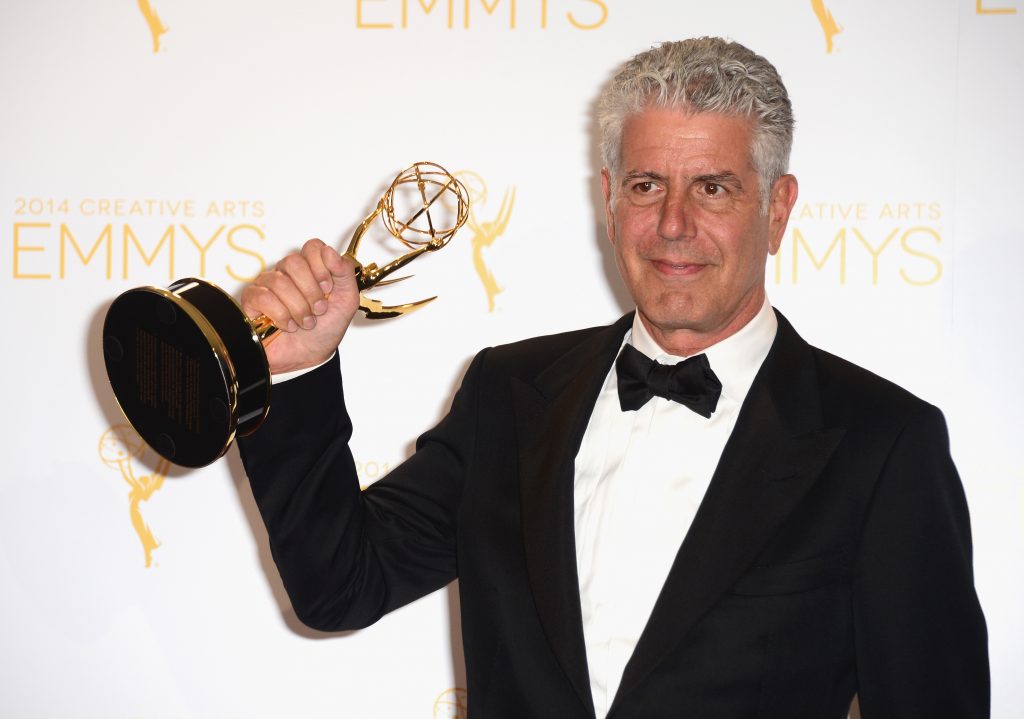Television personality, chef, and author Anthony Bourdain has died. CNN has confirmed that Bourdain committed suicide. On Friday morning, his friend and fellow chef Eric Ripert found him dead in his hotel room in Strasbourg, France, where he was filming an upcoming episode of Parts Unknown. Bourdain – who graduated from the Culinary Institute of America in 1978 – began his career as a chef, before jumping to television. Food Network gave him his first show, A Cook’s Tour, after the success of his book, Kitchen Confidential. From there, he moved to Travel Channel with No Reservations and later The Layover, but he eventually left for CNN, where he traveled the world for Parts Unknown. Through these series, Bourdain managed to do something that other travels shows still fail to do, show the humanity of people that inhabit developing nations. He didn’t condescend; instead, he came from a place of genuine curiosity, and he used his platform to share the stories of people who are so often left out of the spotlight – or who when they do get media coverage, end up being othered.
RELATED: 6 Times Anthony Bourdain Has Spoken Out About Latinos’ Struggles in the Food Industry
As news of his death spreads, people are using social media to pay tribute to the chef and to thank him for accurately representing their homes. He visited many countries, including Cuba, Nicaragua, Colombia, Uruguay, Brazil, and Mexico. And within the United States, he gave us a look at communities of color in Los Angeles, California, Queens, New York, and Ghost Ranch and Ladrón Peak in New Mexico. In one episode, he visited the often-overlooked Bronx and not only visited boricua mainstays, he also devoted time to the cuisine of the Garifuna, indigenous, mixed-race descendants of West African, Island Carib, and Arawak people who live mainly on the coasts of Belize, Honduras, and Guatemala. The Bronx is home to 200,000 Garinagu – the plural form of Garifuna.
But it’s not just that he used his TV shows to amplify the messages of marginalized groups, he was very vocal in his everyday life as well, most recently he supported partner Asia Argento by speaking out against the prevalent sexism and abuse prevalent in Hollywood. He also often advocated for the Latino community, particularly those who form the backbone of the culinary industry. On several occasions, Bourdain – who also openly talked about substance abuse and mental health – explained that the culinary industry would collapse without undocumented immigrants.
When President Donald Trump campaigned before the 2016 election, he made the deportation of 11 million undocumented immigrants a central part of his platform. Not only did Bourdain look to show how mass deportation would affect us through his Los Angeles episode of Parts Unknown, he also spoke out during interviews. While on SiriusXM’s StandUp With Pete Dominick, Bourdain said that if Trump deported 11 million immigrants, every restaurant in the US would “shut down.” “I rolled out of a prestigious culinary institute and went to work in real restaurants,” he said. “I walked into restaurants and always, the person who had been there the longest, who took the time to show me how it was done, was always Mexican or Central American.”
It’s similar to something he stated back in 2007 – when we may not have had Trump threatening to separate families, but still had laws that offered very few paths to citizenship for undocumented immigrants. “The bald fact is that the entire restaurant industry in America would close down overnight, would never recover, if current immigration laws were enforced quickly and thoroughly across the board,” Bourdain said. “Everyone in the industry knows this. It is undeniable…I know very few chefs who’ve even heard of a US-born citizen coming in the door to ask for a dishwasher, night clean-up or kitchen prep job. Until that happens, let’s at least try to be honest when discussing this issue.”
Bourdain also called out people’s hypocrisy about the types of foods they’d be willing to pay more money for. The culinary world often deems European cuisines as more valuable. But the chef, who didn’t mince words, said that it’s racist to believe that Mexican cuisine should be cheaper.
“I would like people really to pay more for top-quality Mexican food,” he said in an Reddit AMA in 2016. “I think it’s the most undervalued, under-appreciated world cuisine with tremendous, tremendous potential. These are in many cases really complex, wonderful sauces; particularly from Oaxaca, for instance, that date back from before Europe. I’m very excited about the possibilities for that cuisines, and I think we should pay more attention to it, learn more about it, and value it more. This is frankly a racist assumption that Mexican food or Indian food should be cheap. That’s not right.”




